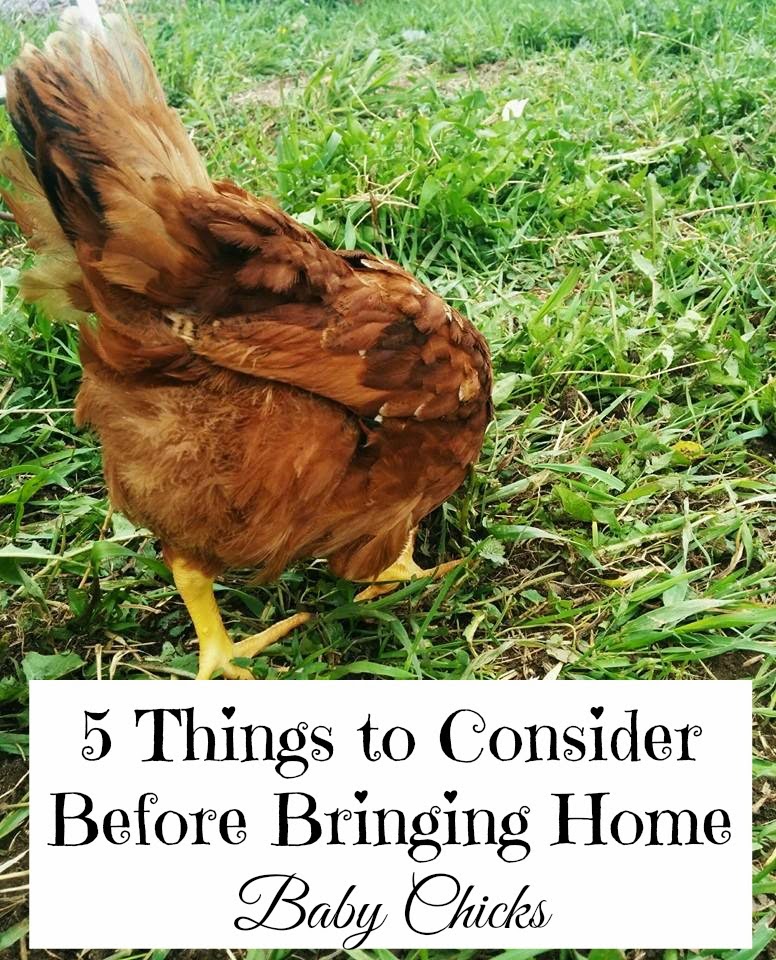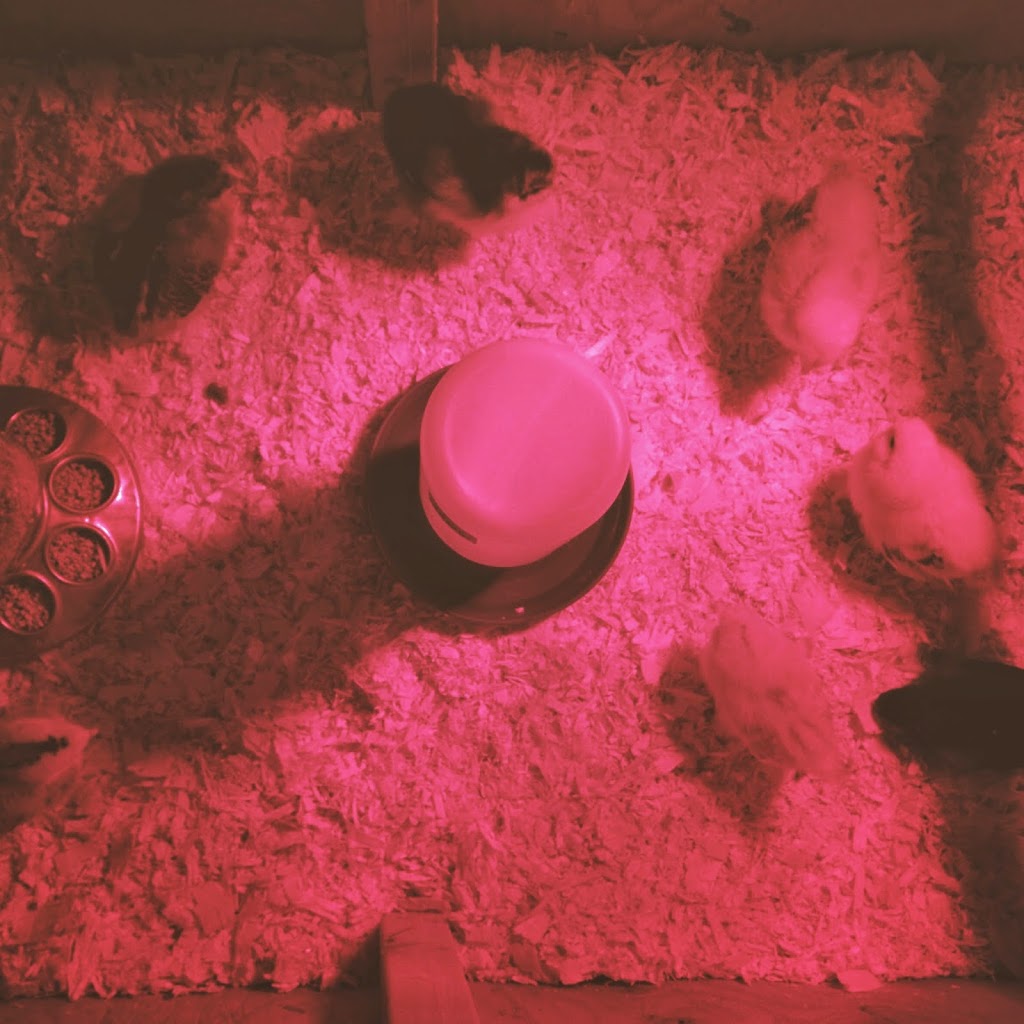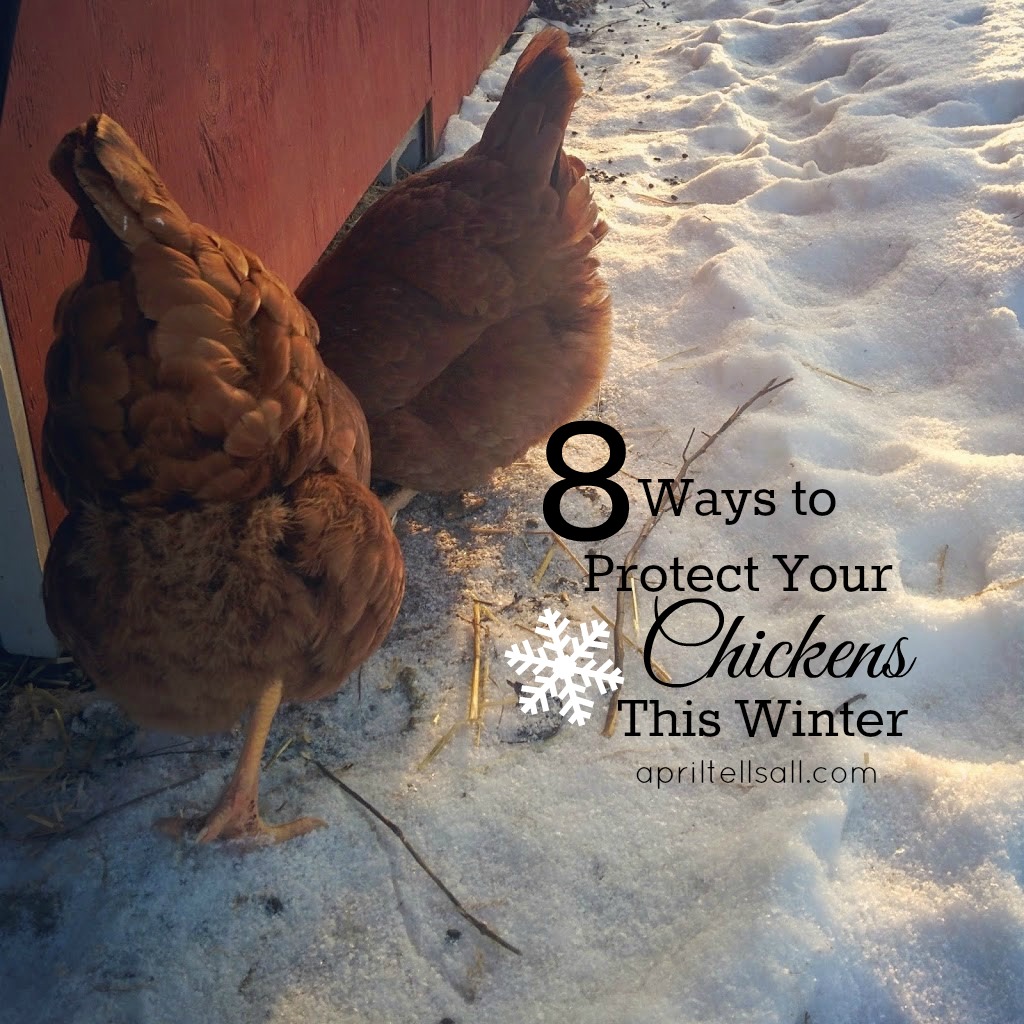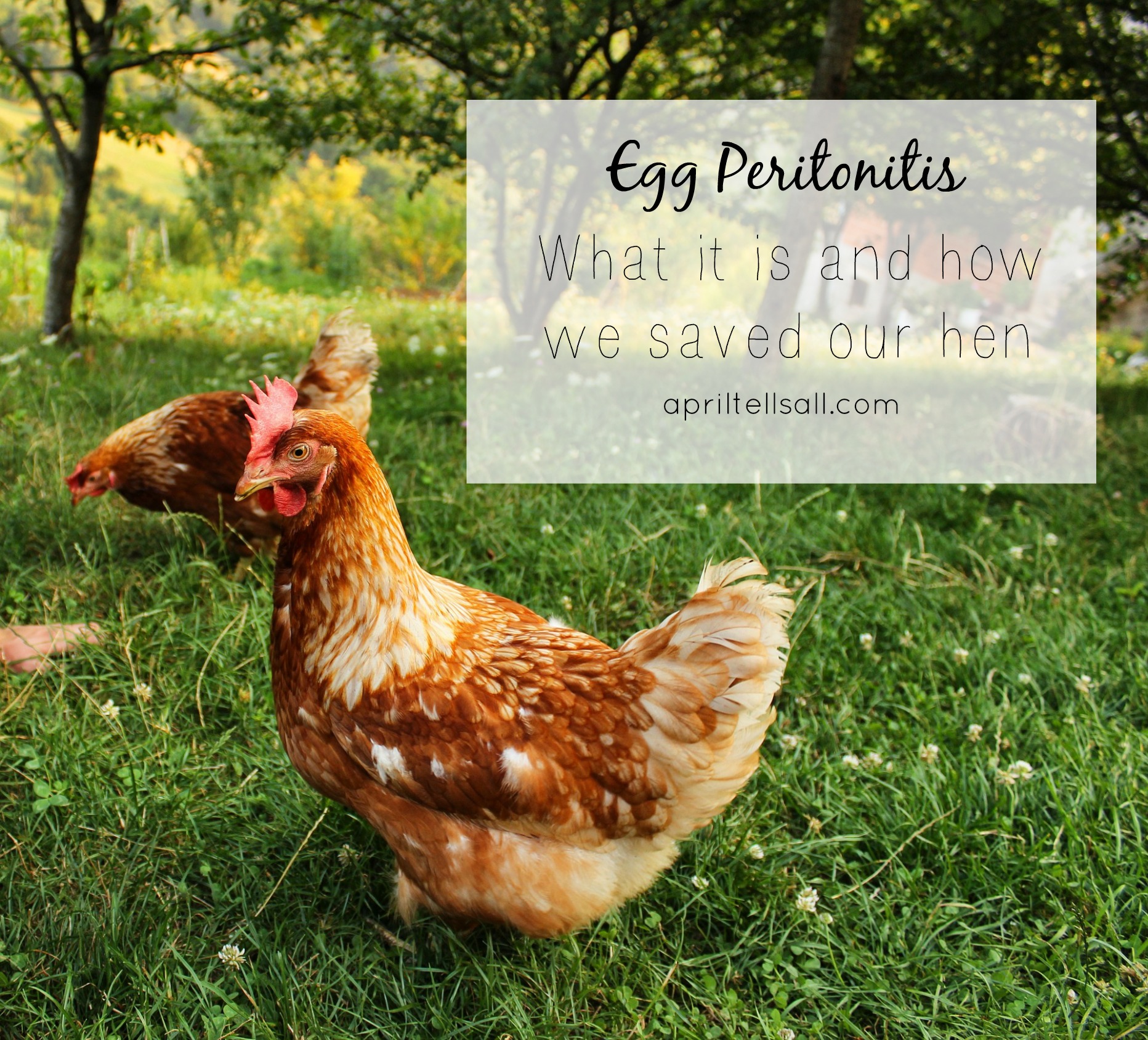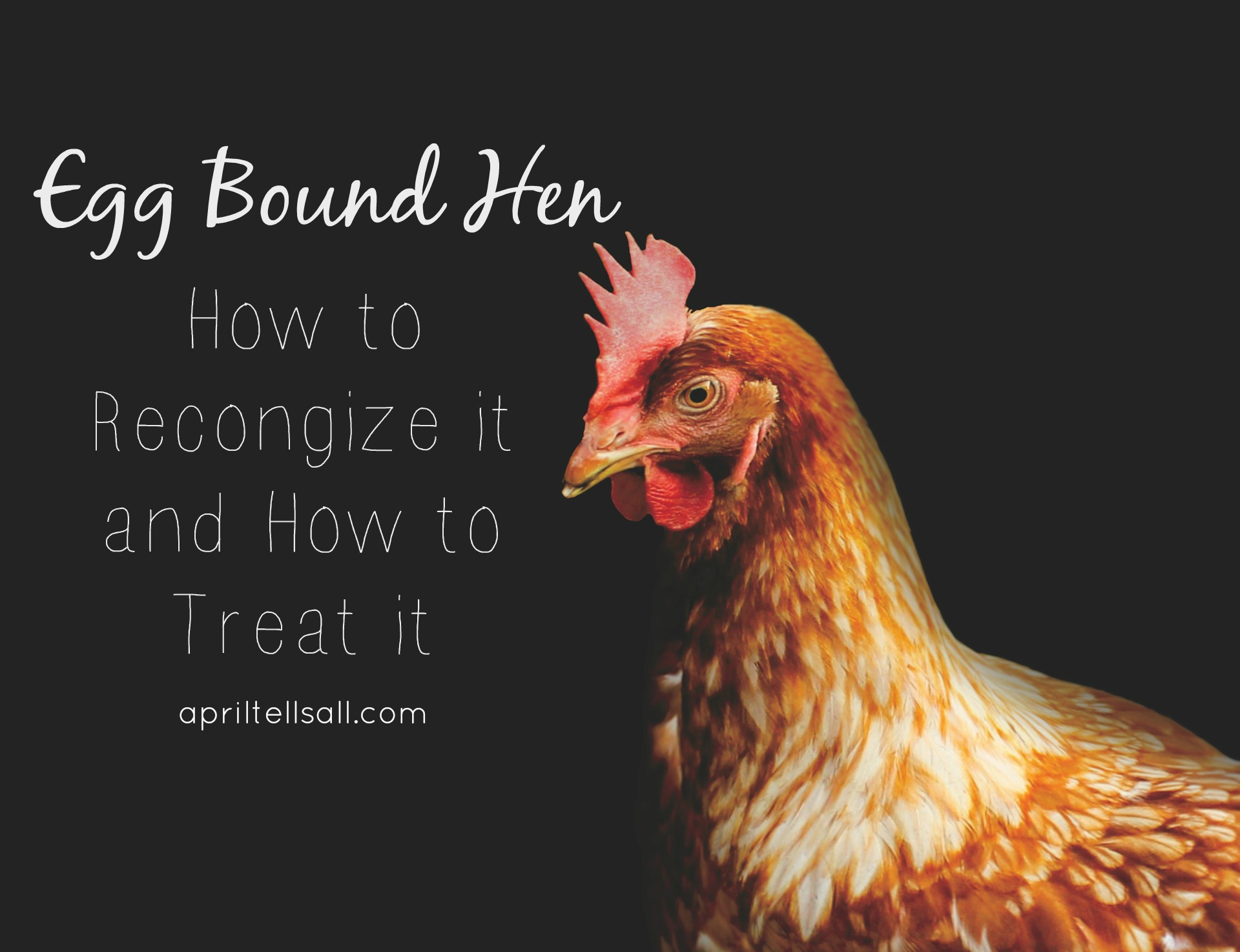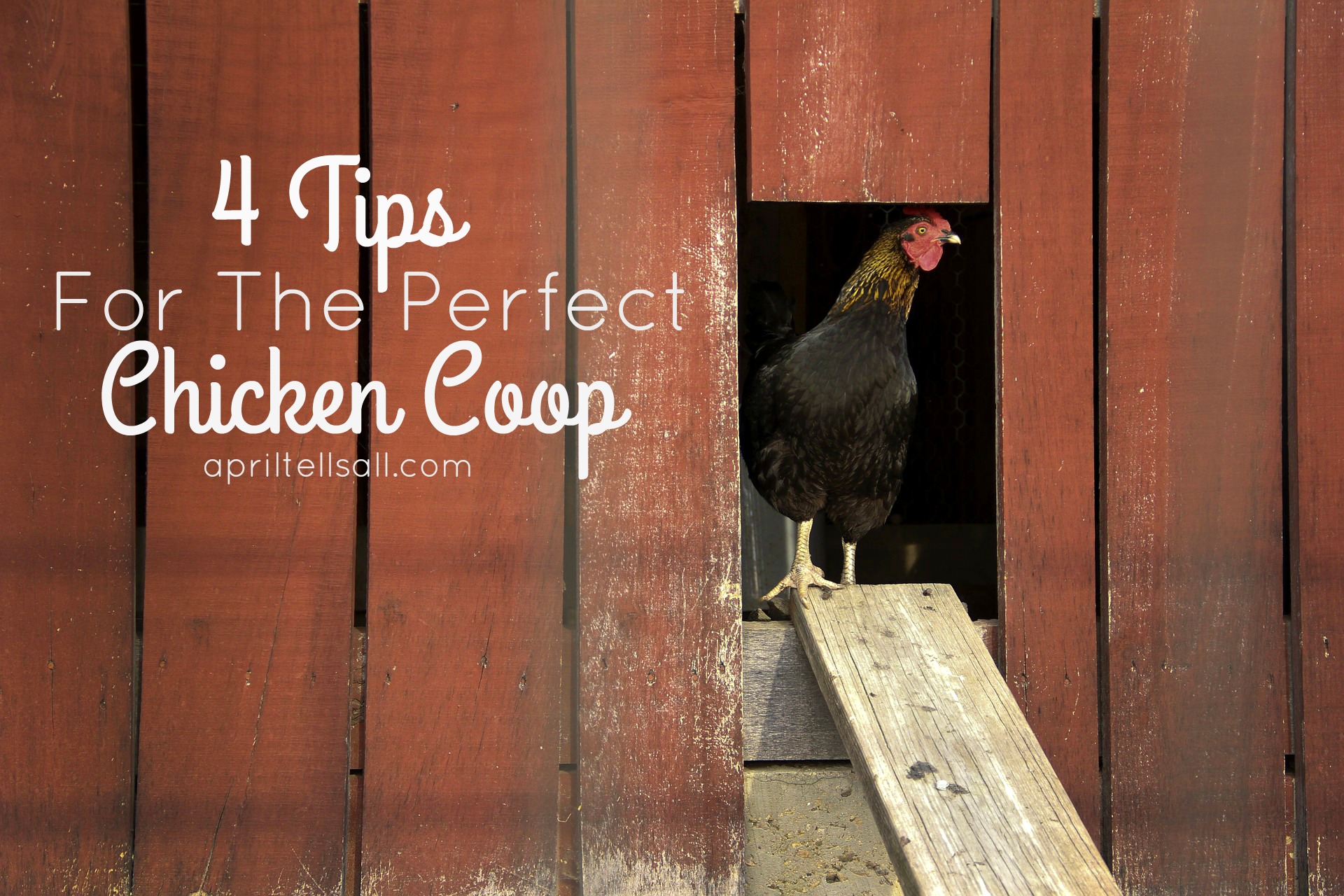Yesterday morning Hubby and I started out on a road trip as single flock parents. When we returned home we were parents to a second flock. Our second babies.
We are very passionate chicken parents. We take this role very seriously.
Seriously.
My uterus throbs for little chicks. Not so much for human babies. Jus’ sayin’. (TMI?)
Anyways…
Here they are, in all their glory.
(Let the record show that they are in my basement (with terrible lighting), under a heat lamp (nice red glow anyone?). Also they don’t really hold still for long. It is a photo taking nightmare.)
Being second chicken parents we are WAY more relaxed this time around. These little gals are also 2 weeks old today, so quite a bit stronger than day olds that you get from a hatchery. We got them from a farmer who incubates eggs, so they are straight run (unsexed). We are back and forth on if we are hoping one is a rooster or not. For 1: neighbours. For 2: We could incubate eggs. For 3: How old time country is a rooster?! I want to see one strutting his stuff out there just for the pure rusticness of it all. And yes rusticness is a word.
But for now we’re calling them gals, and have given them all girl names for the hopes that they are in fact all hens.
They’re mixed breed, or mutts if you will. The father was a Black Autrolorp Rooster, with various hens. Needless to say we are pretty excited to see what they’ll look like when they grow up. On the other hand though if they never want to grow up and stay that small forever I’m cool with that too. And they know it. I’ve told them many times.
Top 5 Things To Consider When Getting Baby Chicks
1. You can never have enough.
Chickens are like potato chips, once you start it is hard to stop. They are the ultimate animal providing food in egg or meat form. They have wonderful personalities, are quite affectionate and talkative and will forever think you are Mom if you raise them from chicks and handle them often. But be warned. One day you’ll look out over your flock and think “I should get some more baby chicks.” And then, the next thing you know, you’re on a road trip with your Homestud picking up baby chicks from some guys garage. Seriously, it happens.
2. They need a good brooder box for the first few weeks.
For the first several weeks of life baby chicks need strict temperature settings to survive. They’re nothing but little balls of fuzz. They cannot regulate their body temperatures and get cold very easily. The ideal settings are: 90 F (35 C) for the first week of life, decreasing by 5 degrees as they age (85 F (30 C) at 2 weeks old. 80 F (25 C) at 3 weeks old, and so on) They should also have a warm side and a cool side to their brooder box so they can get away from the direct heat if they get too warm. We have our heat lamp set up over one end of the brooder box, so they have a hot side and a cool side. You also have to consider where you are going to put this brooder. Are you going to keep them in the house, or in a barn? Can any predators get to them? Can older hens get to them and cause problems? Is it drafty? We have our brooder in the basement in a closed off room. There is a heater in that room and the heat lamp to keep the chicks warm. (We have an unbelievably cold basement.) The biggest predator is a cat named Abbie. So we keep the door closed at all times, a lid on the brooder (an old grid so the chicks can still breathe), and something heavy on the lid so Abbie can’t push it off.
3. Butt Checks.
It happens. Every parent knows it. The butt check. In a chick’s case this is called pasty butt and is usually only a problem the first week of life. If a chick is too hot or too cold, has been under stress, or doesn’t have enough probitotics in it’s system, their poop seems to get extra sticky (baby chick poop is beyond sticky to begin with!). If their little vent (nice way of saying butt hole) gets covered over with poop this will stop the entire elimination process and will kill the chick. If you notice poop over the vent use warm water and a Q-Tip to clean it off. This is quite the process I’m warning you now! Trying to hold a squirmy chick and get extra sticky dried on poop off the little vent is tedious. But worth it. If it is really packed on there, putting the chicks bum under running water from the facet makes it easier. Make sure the chick is dried off well when you put it back into the brooder. Never just rip the poop off fluff and all. They have very delicate skin and you will cause more damage, and serious pain. Try feeding a little bit of yogurt with active bacterial cultures to help stop pasty butt. Also make sure you have the proper temperature in your brooder.
4. Water: Temperature Matters and ACV.
I have found that chicks will not drink cold water. Or even room temperature water. It cools down their body temperature too fast, and they will refuse to drink. Make sure you are giving them warm water. You can also throw in a little raw Apple Cider Vinegar, as long as you don’t have a metal waterer (can cause corrosion and leech heavy metals into the drinking water). Raw apple cider vinegar is full of minerals, vitamins, and electrolytes. It can act as a mild antibiotic, and help with stress. It’ll also keep your water more fresh and slow down algae growth. Chicks are famous for mucking up their water, so you’ll appreciate the help keeping the algae down. I give 1 tablespoon per gallon to all new birds and growing chicks. My full grown ladies get it once a week. Everyone of them loves it. (Side Note: Make sure it is raw apple cider vinegar. Some brands are just apple flavoured, or pasteurized. Raw will have the enzymes you want. You can make your own ACV or try this brand or the always famous Bragg Apple Cider Vinegar)
5. Roosters happen.
I have purchased hatchery stock chicks, and now farm hatched chicks. There are no guarantees that you will be rooster free with either. Hatcheries can offer better chances of getting hens. With straight run you have a 50-50 shot for getting it right. There are a few ways to check for roosters at a young age. I did the wing feather test on ours (granted they’re not a day old so it is highly possible it is inaccurate.) Even home tests are not guaranteed. If you absolutely cannot have a rooster (due to city bylaws, neighbour complaints, or you have too many already), be sure you have a plan in place about what you are going to do should you get one. If this is a chick that you are going to be raising and loving on like a pet are you going to be able to sell him off or eat him? Seriously consider what you will do before jumping in.
Now if you’ll excuse me I’ve got 7 babies to oogle over.

